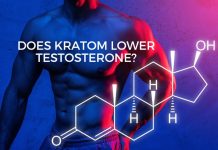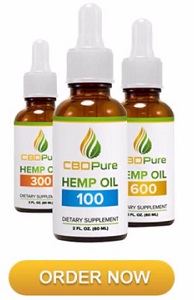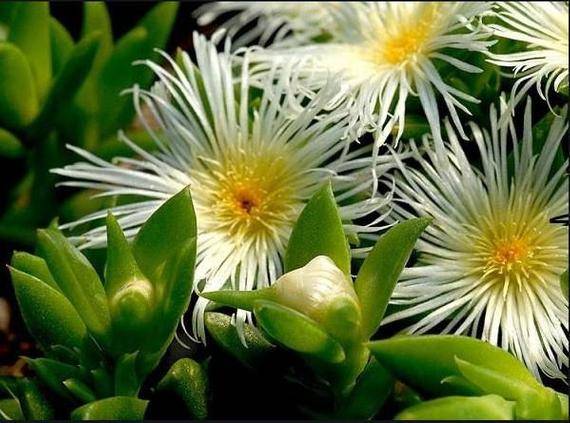Mitragynine kratom alkaloid is a compound found in the leaves of the Mitrgyna speciosa tree. This tree is identified as the kratom tree growing in the Southeast Asian region. Kratom alkaloid is one of the primary active alkaloids in kratom responsible for its effects and potential benefits.
Recently, Mitragynine kratom alkaloid is gaining popularity as an effective psychoactive herbal product. Its usage has been spreading worldwide. This particular plant has been utilized for many years as an herbal remedy dating back to the late 1800s. Traditionally, mitragynine is used to address various ailments, such as diarrhea, muscle pain, and cough, and to boost productivity.
Composition
Mitragynine kratom alkaloid is used as a reference point for measuring the potency of different kratom strains. In contrast, the exact alkaloid composition can differ based on the region and processing techniques. Mitragynine is typically the predominant alkaloid in kratom. It usually accounts for 60-70% of the total alkaloid content.
Medicinal Uses Of Mitragynine Kratom Alkaloid
Mitragynine kratom alkaloid has been the subject of research exploring its potential benefits in various areas.
Analgesic And Antipyretic Effects
Mitragynine alkaloid has attracted attention mainly because of its potential as a pain reliever. It has analgesic effects. So it assists in alleviating pain. Mitragynine can modulate pain signals. It can also help with chronic pain disorders.
Antidepressant And Anxiolytic Effects
Research suggests that Mitragynine may have antidepressant and anxiolytic results. These effects could potentially help in managing symptoms of depression and anxiety disorders. Its interaction with the drug receptors in the brain is believed to contribute to these effects.
Immune System Support
Some studies have indicated that Mitragynine may have immune-enhancing properties. It has been exercised in improving the immune system. This potentially leads to increased resistance to infections and illnesses.
Blood Pressure Regulation
Mitragynine kratom alkaloid has been reported to lower blood pressure. It is believed to act as a vasodilator, which widens blood vessels. This may contribute to regulating blood pressure levels.
Antiviral Properties
Mitragynine may possess antiviral properties, specifically against certain strains of influenza viruses. These findings suggest it also has antiviral actions on other viral pathogens. Extra research is essential to confirm these properties.
Antidiabetic Effects
Mitragynine alkaloids regulate blood sugar levels and improve glucose metabolism. This could benefit individuals with diabetes or at risk of developing the condition.
Appetite Suppression
Mitragynine has been reported to act as an appetite suppressant, potentially aiding individuals seeking to manage their weight or control their calorie intake.
Mitragynine: A Partial Drug Agonist
Mitragynine is a natural alkaloid that interacts with receptors in the brain. It falls under the category of partial drug agonists. It means it binds to drug receptors but only partially activates them. This unique property distinguishes it from traditional drugs and contributes to its distinctive pharmacological profile.
Mood-Enhancing Effects
Mitragynine is also known for its potential mood-enhancing effects. It can promote euphoria, relaxation, and a general sense of well-being. This is likely because of its interaction with the delta receptors, which affect mood regulation.
Mitragynine As An Alternative For Managing Drug Withdrawal Symptoms
Additionally, researchers have explored the potential of Mitragynine in managing drug withdrawal expressions. Some individuals have reported using Mitragynine-rich kratom as a natural alternative to traditional substances during withdrawal. It is thought that Mitragynine’s interaction with the drug receptors may help alleviate withdrawal symptoms. However, further research should be conducted to understand its effectiveness and safety in this context fully.
How Should I Use Mitragynine?
The extraction of Mitragynine kratom involves various preparations and methods. Kratom’s fresh leaves can be consumed directly. The dried leaves can be smoked or used to make tea by brewing the powdered leaves with hot water. This is often consumed with honey or sugar to mask the bitter taste. Lemon juice is sometimes added to extract the alkaloids.
Mitragynine kratom alkaloid is consumed as a syrup pill. The dried leaves are powdered and boiled in hot water to formulate syrup. This syrup is then blended with the leaves of palas palm. This is formulated as pills called ‘madat’ in Malaysia. These pills are typically smoked using long bamboo pipes.
Understanding The Risks And Side Effects
It is important to note that Mitragynine carries risks and potential side effects. Like any substance that interacts with drug receptors, it can be habit-forming. It can cause addiction and dependence if used irresponsibly or excessively. Furthermore, the quality of kratom products can differ significantly. This may affect the concentration of Mitragynine and other alkaloids present.
Quality And Purity Concerns
The purity of mitragynine products can alter remarkably. This variability may impact the concentration of Mitragynine and other alkaloids present, affecting their use’s overall effects and potential risks.
Consultation With Healthcare Professionals
Discuss this with a healthcare professional before using Mitragynine or kratom. It ensures your safety and well-being. Healthcare professionals can provide personalized advice, monitor your usage, and help you make informed decisions.
Mitragynine is a natural alkaloid of kratom. It has analgesic properties. It also has potential mood-enhancing effects. Mitragynine kratom alkaloid has been studied for its potential in managing drug withdrawal symptoms. However, its use should be cautiously approached because of the tendency of dependence. Ask a medical professional for personalized advice before using Mitragynine or kratom.
References
- Prozialeck, W.C., Jivan, J.K., & Andurkar, S.V. (2012). Pharmacology of Kratom: An Emerging Botanical Agent With Stimulant, Analgesic, and Opioid-Like Effects. Journal of the American Osteopathic Association, 112(12), 792-799.
- Singh, D., Müller, C.P., & Vicknasingam, B.K. (2021). Kratom (Mitragyna speciosa) Alkaloids: Active Constituents and Their Biological Activities. Frontiers in Pharmacology, 12, 751656.
- Warner, M.L., Kaufman, N.C., & Grundmann, O. (2016). The Pharmacology and Toxicology of Kratom: From Traditional Herb to Drug of Abuse. International Journal of Legal Medicine, 130(1), 127-138.
- Young, R., & Schwartz, M.D. (2015). Kratom and Other Mitragynines: The Chemistry and Pharmacology of Opioids from a Non-Opium Source. Boca Raton, FL: CRC Press.
- Suhaimi, F. W., Yusoff, N. H. M., Hassana, R., Mansor, S. M., Navaratnam, V., Müller, C. P., & Hassana, Z. (2016). Neurobiology of Kratom and its main alkaloid mitragynine. Centre for Drug Research, Universiti Sains Malaysia, 11800 Minden, Penang, Malaysia & Department of Psychiatry and Psychotherapy, Friedrich-Alexander-University Erlangen-Nuremberg, Schwabachanlage 6, 91054 Erlangen, Germany.
- Johnson, L. E., Balyan, L., Magdalany, A., Saeed, F., Salinas, R., Wallace, S., Veltri, C. A., Swogger, M. T., Walsh, Z., & Grundmann, O. (2020). The Potential for Kratom as an Antidepressant and Antipsychotic. Yale Journal of Biology and Medicine, 93(2), 283-289. PMID: 32607089 PMCID: PMC7309668.
- Zurina Hassan, Mustapha Muzaimi, Visweswaran Navaratnam, Nurul H.M. Yusoff, Farah W. Suhaimi, Rajakumar Vadivelu, Balasingam K. Vicknasingam, Davide Amato, Stephan von Hörsten, Nurul I.W. Ismail, Nanthini Jayabalan, Ammar I. Hazim, Sharif M. Mansor, and Christian P. Müller. “From Kratom to mitragynine and its derivatives: Physiological and behavioral effects related to use, abuse, and addiction.” Neuroscience & Biobehavioral Reviews, 37(2), 138-151. February 2013. doi: 10.1016/j.neubiorev.2012.11.012.
- Ross, M. (2021). Kratom is Medicine: Natural Relief for Anxiety, Pain, Fatigue, and More. GreenStone Books.
















